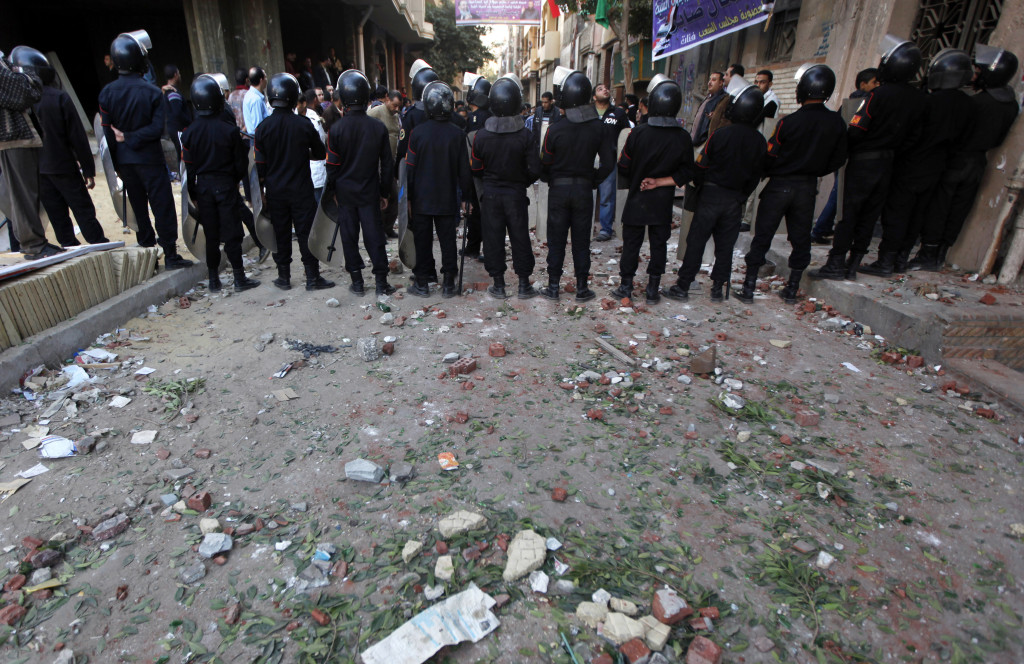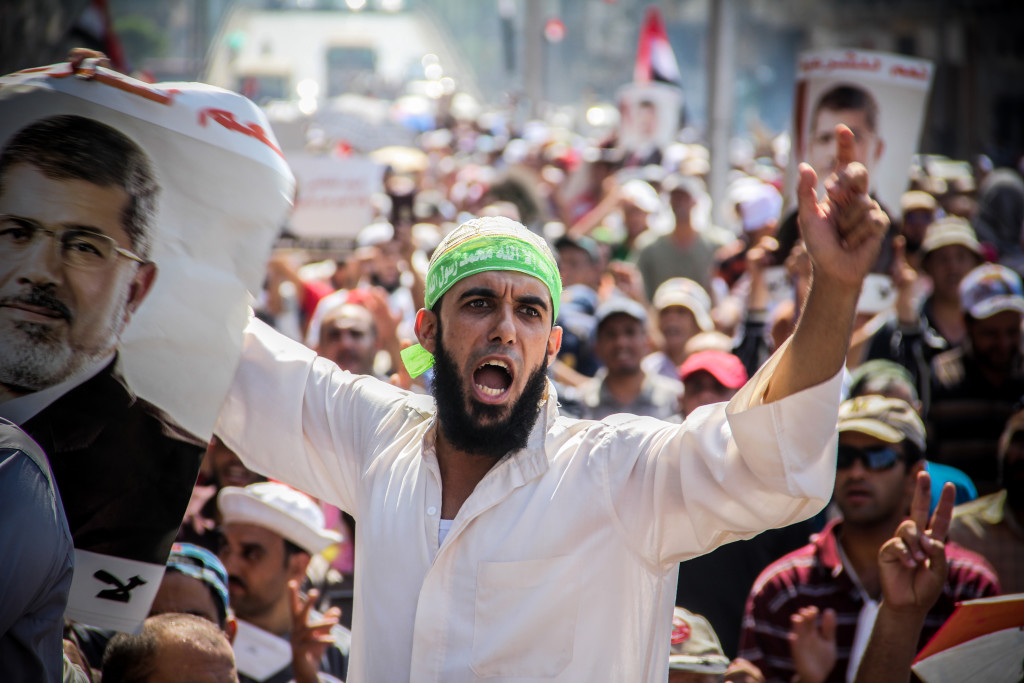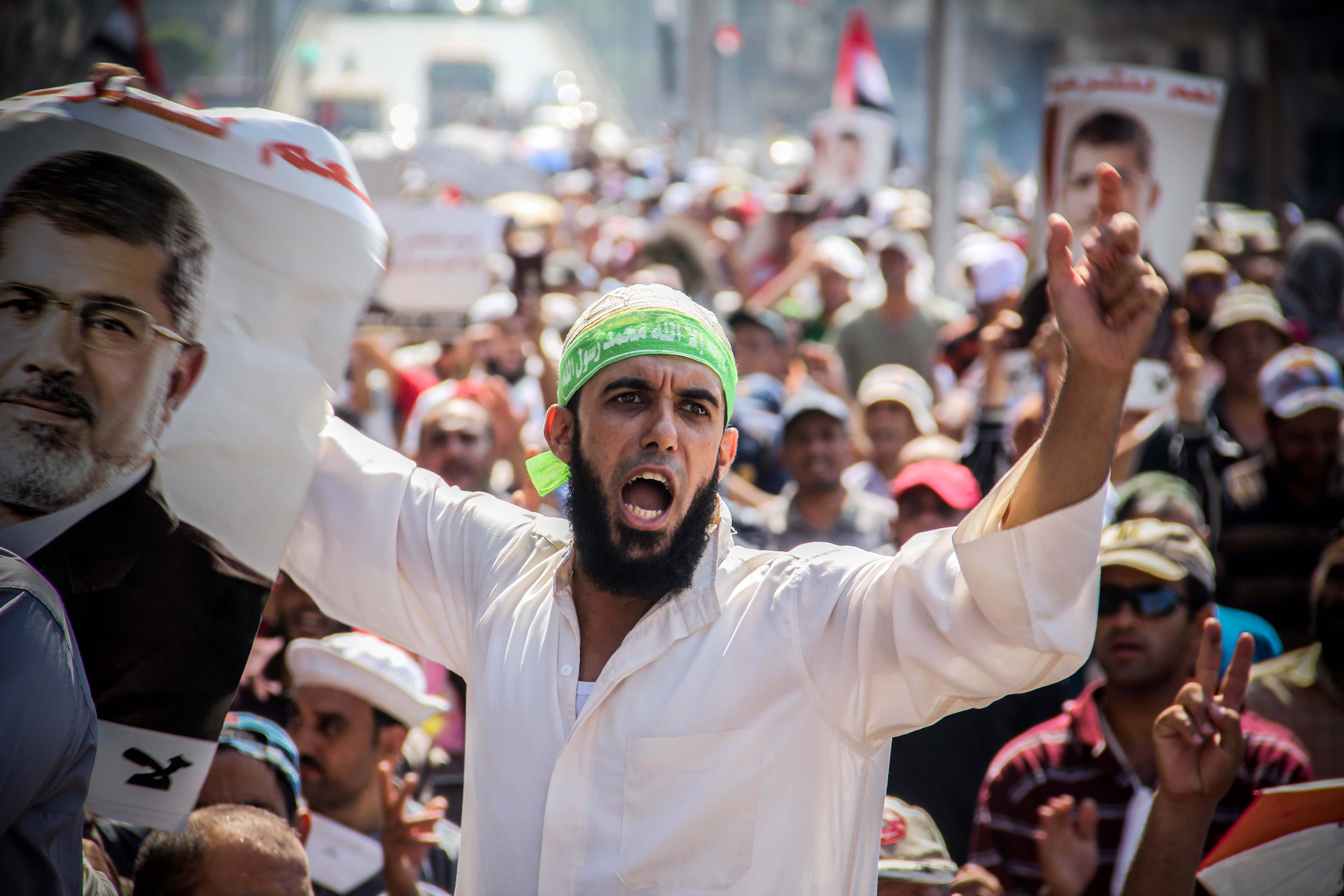Egypt Adopts Broad New Restrictions On Protests

November 25, 2013
Share
Egypt’s military-backed interim government has passed a law that human rights groups warn would virtually criminalize the kind of free assembly that forced presidents Hosni Mubarak and Mohamed Morsi from power.
The final text of the bill — which was ratified Sunday by interim President Adly Mansour — has yet to be published in the state registry, but according to early drafts of the legislation, it would:
- Require citizens to provide three days notice for any public gatherings of more than 10 people, and for applications to include the location of assembly, march route, demands of the protest, any chants people plan to use and the names and contact information of the organizers.
- Allow authorities to block marches that may “pose a serious threat to security or peace” or that seek to “influence the course of justice”
- Forbid political marches at mosques, churches or other places of worship
- Ban overnight sit-ins as well as the wearing of masks during demonstrations
- Demand 24 hours notice before any election campaign event.
- Grant police the authority to end any peaceful protest if a single participant breaks the law or engages in violence.
Under the law, violators would face a range of potential penalties, such as a one-year jail term for covering the face during a protest or demonstrating outside of a place of worship. Violent actions at a rally can lead to a seven-year imprisonment, and fines can run as high as $4,360.
It also spells out how police can shut down a public gathering, starting with verbal warnings, followed by more extreme tactics, including water cannons, tear gas, clubs and rubber-coated bullets.
The law comes amid a broad crackdown on the Islamist supporters of former President Mohamed Morsi, whose July ouster was the focus of FRONTLINE’s Egypt In Crisis. In September, for example, the military-backed government banned Morsi’s Muslim Brotherhood from carrying out political activities and placed a freeze on the group’s funds. The government has also arrested a number of senior brotherhood leaders.
Human rights groups have been quick to criticize the new law, calling the legislation a throwback to the authoritarian policies in place during the Mubarek regime.
“The draft law seeks to criminalize all forms of peaceful assembly, including demonstrations and public meetings, and gives the state free hand to disperse peaceful gatherings by use of force,” according to a statement signed by Egyptian 19 human rights and released before the final law was passed.
In a television interview, Prime Minister Hazem El-Beblawi defended the government’s stance by saying “The starting point for this law is that the right to protest is a human right and must be given full care and attention. … It is just that practicing this right must be met with a sense of responsibility so it won’t damage security or terrorize or assault establishments.”

Related Documentaries
Latest Documentaries
Related Stories
Related Stories
Explore
Policies
Teacher Center
Funding for FRONTLINE is provided through the support of PBS viewers and by the Corporation for Public Broadcasting, with major support from Ford Foundation. Additional funding is provided the Abrams Foundation, Park Foundation, John D. and Catherine T. MacArthur Foundation, Heising-Simons Foundation, and the FRONTLINE Trust, with major support from Jon and Jo Ann Hagler on behalf of the Jon L. Hagler Foundation, and additional support from Koo and Patricia Yuen. FRONTLINE is a registered trademark of WGBH Educational Foundation. Web Site Copyright ©1995-2025 WGBH Educational Foundation. PBS is a 501(c)(3) not-for-profit organization.





















